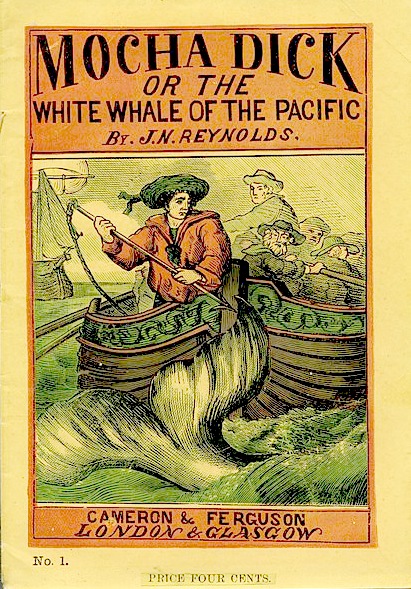
Jeremiah
Reynolds - The White Whale of the Pacific
Jeremiah N. Reynolds (fall 1799 – August 25, 1858), also known as J. N. Reynolds, was an American newspaper editor, lecturer, explorer and author who became an influential advocate for scientific expeditions. His lectures on the possibility of a hollow Earth appear to have influenced Edgar Allan Poe's The Narrative of Arthur Gordon Pym of
Nantucket (1838) and his 1839 account of the whale Mocha Dick, Mocha Dick: Or the
White Whale of the
Pacific, influenced
Herman Melville's
Moby-Dick (1851)
ADVENTURES
Gaining the support of members of President John Quincy Adams' cabinet, and speaking before Congress, Reynolds succeeded in fitting out a national expedition to the South Pole. However, Andrew Jackson opposed the project, and after he became president it was squelched.
Reynolds garnered support from private sources and the expedition sailed from
New York City in 1829. Encountering much danger, the expedition reached the Antarctic shore and returned north, but at Valparaíso, Chile, the crew mutinied. They set Reynolds and the artist John Frampton Watson on shore, where they tramped for the next two years.
In 1832, the United States frigate Potomac, under Commodore John Downes, arrived. The ship had been ordered to the coast of Sumatra to avenge an attack on an American ship, Friendship, of Salem, Massachusetts, and was returning home in what became a
circumnavigation of the globe. Reynolds joined Downes as his private secretary for the trip and wrote a book about the experience.
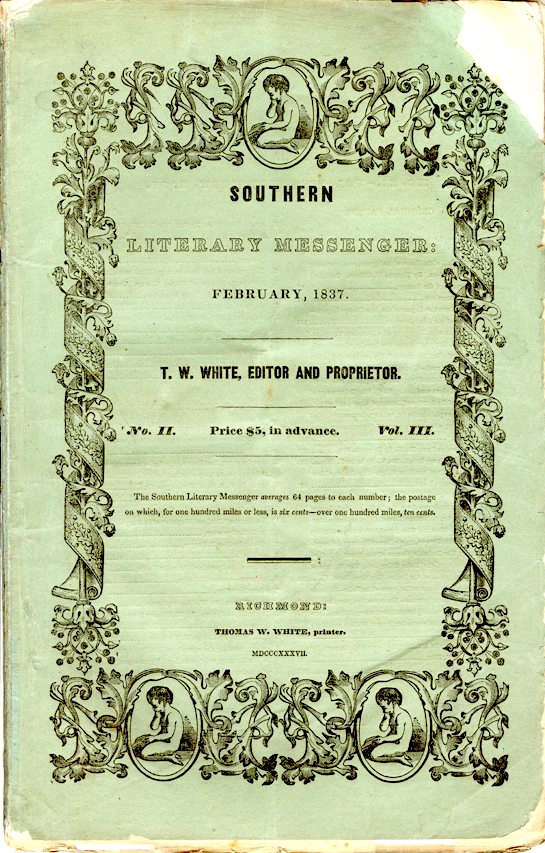
INFLUENCE
In the January 1837 issue of the Southern Literary Messenger, Edgar Allan Poe reviewed Reynolds' "Address, on the Subject of a Surveying and Exploring Expedition to the
Pacific Ocean and South Seas (New York, 1836) first given to the House of Representatives on April 2, 1836".
"Poe used some seven hundred words of Reynolds' Address in the fifteen hundred words of Chapter XVI of The Narrative of Arthur Gordon Pym", wrote Daniel Tynan of the Colorado College in an article about the Poe text, adding a synopsis of "sections from Chapter IV of Reynolds' Voyage and Chapter XIV of Pym, indicating to what extent Poe borrowed from Reynolds' book for his own purposes".
Tynan's assumption, however, that the "Mr. Reynolds" Poe praised (actually not in January 1837 in the SLM but only in September 1843 in Graham's Magazine, Vol. XXIV No.
3) as "the prime mover of this important undertaking", the United States Exploring Expedition, can be identified with Jeremiah N. Reynolds
seems doubtful.
The Knickerbocker of May 1839 published "Mocha
Dick: Or the White Whale of the Pacific", Reynolds' account of
Mocha
Dick, a white sperm whale off Chile who bedeviled a generation of
whalers for thirty years before succumbing to
one would help to inspire
Herman Melville to write
Moby-Dick.
The novel Our Plague, A Film from New York (1993) by James Chapman includes scenes of Reynolds as a character, making his way in scientific circles and delivering a lecture in New York. Reynolds also appears in Félix J. Palma's The Map of the Sky.
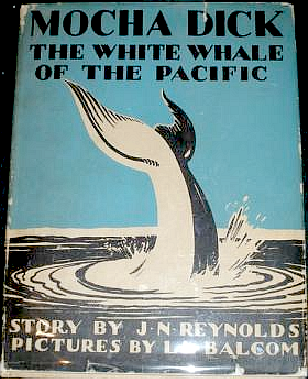
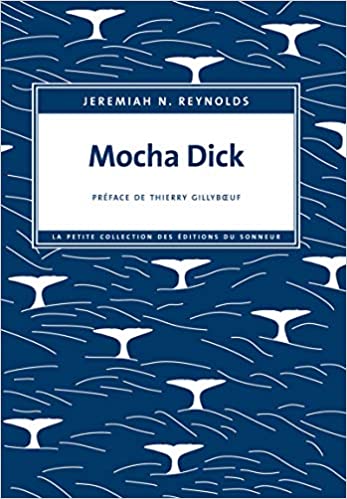
Jeremiah N. Reynolds (1799–1858), an American newspaper editor, lecturer, explorer and author who became an influential advocate for scientific expeditions. Reynolds gathered first-hand observations of Mocha Dick, an albino sperm whale off Chile who bedeviled a generation of whalers for thirty years before succumbing to one. Mocha Dick survived many skirmishes (by some accounts at least 100) with whalers before he was eventually killed. In May 1839, The Knickerbocker, or New-York Monthly Magazine published Reynolds’ “Mocha Dick: Or the White Whale of the Pacific,” the inspiration for Herman Melville's 1851 novel Moby-Dick. In Reynolds' account, Mocha Dick was killed in 1838, after he appeared to come to the aid of a distraught cow whose calf had just been slain by the whalers. His body was 70 feet long and yielded 100 barrels of oil, along with some ambergris. He also had several harpoons in his body.
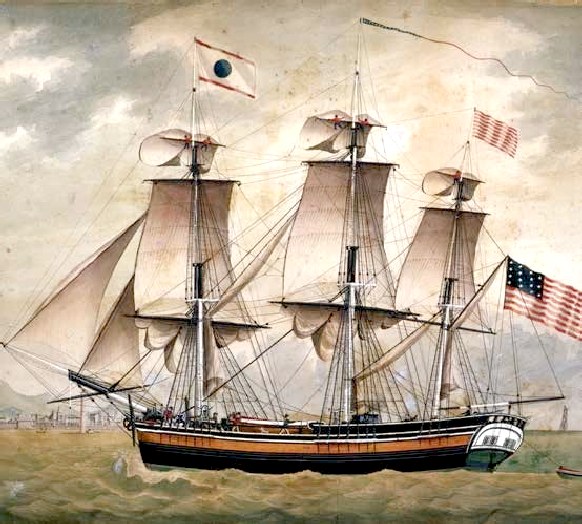
The number of accounts of sinkings of whaling ships by
large sperm whales, is sure to have influenced Herman Melville in the
writing of Moby Dick, finally ending with the sinking of the Ann
Alexander in 1851.
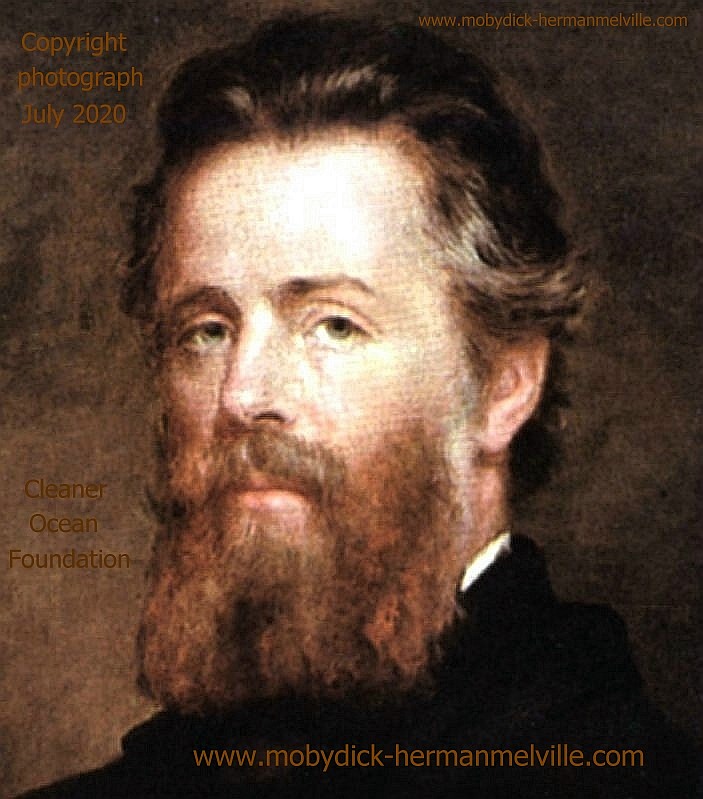
Herman
Melville was the author of a story about what we'd now consider an illegal activity,
the commercial hunting of whales for oil and meat. Whaling is still
carried out by Japan, Iceland and Canada, among other nations, though
most nations voluntarily abstain in the interests of conserving the
magnificent animals - as per International
Whaling Commission guidelines.
Please use our
A-Z INDEX to
navigate this site





